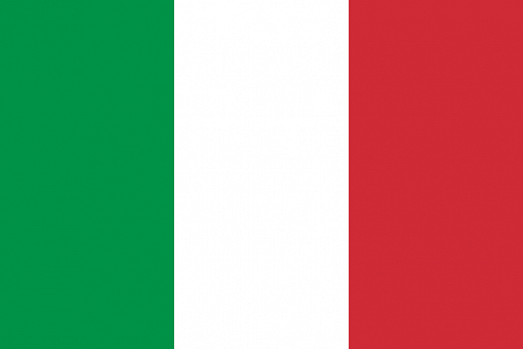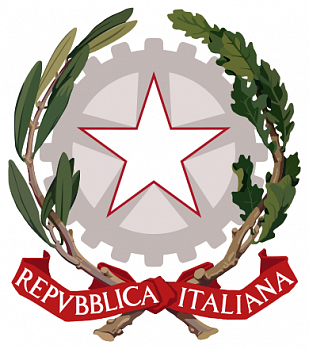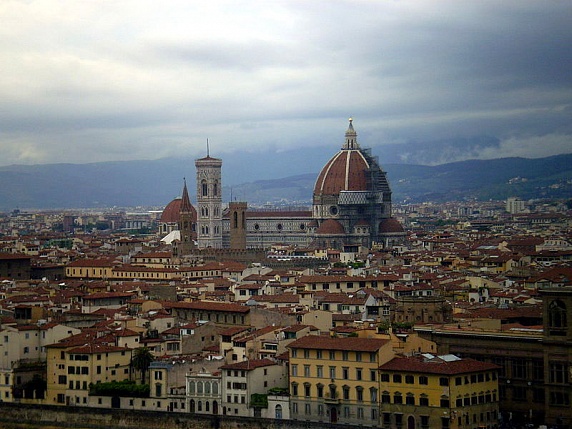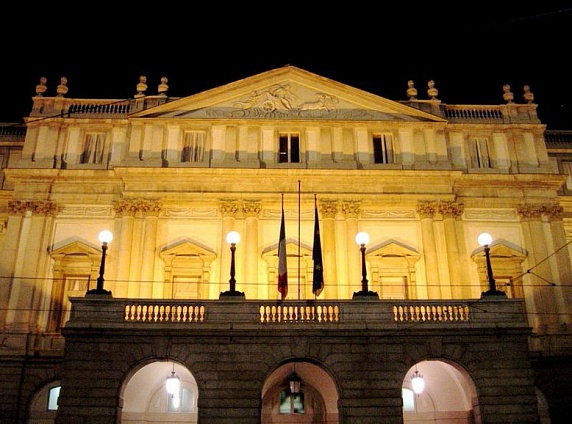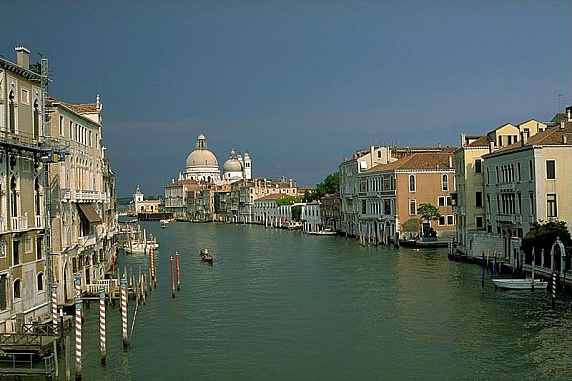 the Republic of Italy
the Republic of Italy
Foreign Minister Sergey Lavrov’s statement and answers to media questions at a joint news conference following talks with Italian Minister of Foreign Affairs and International Cooperation Luigi di Maio, Moscow, February 17, 2022
Ladies and gentlemen,
Our talks focused on the understandings reached by President Vladimir Putin and Prime Minister Mario Draghi during their telephone conversations. We understand that our leaders are interested in continuing such contacts. My Italian colleague and I are discussing forthcoming opportunities for that.
We noted the good progress in bilateral relations. Last year our trade rose by about 50 percent to over $30 billion. Cooperation between our business communities is well established. In January 2022, President Putin had a meeting, via videoconference, with Italian business leaders arranged by the Russian-Italian Chamber of Commerce. We have an intergovernmental committee on trade and economic issues which we hope will be able to resume in-person operations shortly.
Naturally, a number of mechanisms were not so salient during the pandemic. In particular, we would like to resume work within the framework of the inter-state consultations which were actively used a while ago. The last consultations were held in Trieste in 2013. Consultations in the format of meetings of the two countries’ leaders and key government officials have not been held since, although the mechanism was quite useful. Despite restrictions imposed in response to the coronavirus in February 2020 (time flies!), the foreign and defence ministers resumed work in the 2+2 format. I believe it is time to think about the next meeting due to be held in Italy.
Russia and Italy traditionally have an abundance of cultural events which enjoy great popularity among our citizens. In September 2021, the bilateral Year of Museums was kicked off in Milan. The programme of cultural exchanges is ongoing, it will conclude at the end of this year. We are going to agree on preparations right now for the next cultural programme for 2023-2025. Italy properly celebrated the bicentenary of Fyodor Dostoyevsky’s birth and unveiled a monument to Dostoyevsky. We view it as recognition of the interdependency and complementarity of our cultures, historical achievements and cultural heritage.
With regard to international affairs, we primarily focused on discussing the situation in the Euro-Atlantic area in the context of the problems the Russian Federation had accentuated in its initiatives sent in December 2021 to the United States and the North Atlantic Alliance with proposals to start talks on specific legal, international and legally binding bilateral and multilateral documents. We got a response to these proposals. By the way, we were waiting for it for a month and a half. We are finishing analysing the US message. I expect you to find out shortly how the situation will unfold. We will send this letter to the US side today. I warned that we will make this letter public. We feel it is absolutely necessary for the concerned members of civil society in our countries to have an idea of what is going on and which positions each of the parties advocates. Because otherwise, if it is kept secret, public opinion will be stuffed with lies and outright propaganda which has filled the information space while describing the developments in Europe and on the Russia-Ukraine border. You read all that. As professionals, you are perfectly aware of how much you can trust these fantasies.
We discussed our vision for further cooperation in the multilateral format. We appreciate Italy’s role in various formats, be it Russia’s relations with the EU when these relations existed, or the Russia-NATO Council when it was still operational, or the Organisation for Security and Cooperation in Europe where Italy traditionally stands for a constructive dialogue and discourages attempts by many OSCE member-states to use the venue for ratcheting up confrontation. We see the current policy Italy is pursuing on the European continent and in the Euro-Atlantic region in general as a continuation of the role Italy played in 2002, when the Rome Declaration was adopted at the Pratica di Mare summit, the declaration which proclaimed, among other things, the institution of the Russia-NATO Council. It confirmed and specified key areas of our partnership, as it used to be called back then. It had every chance of becoming a strategic partnership.
We appreciate our colleague Luigi di Maio and his delegation’s initiative to visit the Russian Federation to continue our exchange of views. It is always useful. Especially in situations when you need to be understood as clearly as possible, so as to avoid any surprises.
Question (retranslated from Italian, addressed to Luigi di Maio): What will Italy do if new sanctions are imposed on Russia?
Sergey Lavrov (speaking after Luigi di Maio): We know about the consensus rule in the EU and other formats. It is used when decisions on sanctions are being made. The question about what Italy will do if new sanctions are imposed is incorrect. Sanctions cannot be imposed if one country objects. We know that there is a solidarity principle, we call it everyone covering for each other. I do not think Italy is interested in increasing tensions. On the contrary, we see continuity in Italy’s diplomatic traditions and foreign policy, including towards the Russian Federation: not to keep threatening, not to announce some sort of punishment but rather look for areas of agreement.
We talked today about how those very principles of indivisibility of security (they are being discussed at our talks in the context of sustainable, long-term and legally binding guarantees) which were signed by everyone contain, among others, a part stating that it is unacceptable for a country, a group of countries or organisations to claim a dominant role in the OSCE space. This is exactly what NATO is doing.
Here is a concrete example for you. It did not begin yesterday. Back in 2009, Russia suggested that the principle of indivisibility of security be made legally binding and submitted as a respective treaty for consideration at the NATO-Russia Council. After multiple attempts to dodge the discussion, NATO guys told us that it was out of the question since legal security guarantees can only be provided within NATO and to nobody else in Europe. This is an arrogant position. It is downright provocative as it is designed to push neutral countries into knocking on NATO’s “open door,” which has not been approved by anyone anywhere. We spoke about it today.
The Washington Treaty contains Article 10 (President Vladimir Putin spoke about that at a news conference with President Emmanuel Macron the other day). It allegedly runs that any country like Ukraine may want to join NATO and its right to do so must be acknowledged. But the article says the opposite. The member-countries of the alliance may (or may not, is the meaning), by unanimous agreement, invite any other European country to join if the country meets the Organisation’s criteria and, which is key, if this country will add to the security of the North Atlantic Alliance. It is absolutely clear what it is all about. Guided by the objective facts, application of Article 10 as it stands yields an obvious answer. This is our position. We spoke about it today.
Question (retranslated from Italian): The exercises on the border with Belarus are to be over on February 20. Does this mean the end of the escalation? Is there any confirmation that this will be the case?
Sergey Lavrov: As for when the de-escalation begins or when the escalation ends. This is not our expression. We did not invent it. It was invented by propagandists. Now it has become a cliche. Today no European or US politician speaks without using this expression of concern about escalation, and all demand de-escalation.
The question about February 20 is not for me. February 20 is the day when our exercises will be over, as it was announced. I don’t know if the escalation will end on February 20. We are not the ones making a big issue out of it. It’s not us doing it. Politico, a well-known disseminator of information about what is happening on the Russian-Ukrainian border, citing “the most reliable information,” declared that what did not take place yesterday will begin on February 20, that is, there will be an invasion. Elizabeth Truss who recently visited Moscow said yesterday that, according to her assessment, the escalation of tensions could last for months. Maybe they intend to continue it until the next cold spell. I don’t know. The question is not for us.
Question (retranslated from Italian): You presented a list of security guarantees and said that they were imperative, but the West has not shown any inclination to make concessions. Nevertheless, you have been talking about the possibility of achieving concrete results. What do you mean, specifically?
Sergey Lavrov: Saying that Russia presented a list of security guarantees and said that they were imperative would be somewhat misleading. It was not Russia who articulated the list of guarantees. It is set forth in the OSCE and the Russia-NATO Council documents. The first step dates back to 1994, when the OSCE adopted its Code of Conduct on Politico-Military Aspects of Security. It proclaims without any ambiguity that no participating country can do anything that would pose a threat to the security of any other state. Then came the 1997 Russia-NATO Founding Act, and 1999 OSCE Istanbul Summit, the 2002 Rome Declaration, and the 2010 OSCE Summit in Astana.
The formula underpinning our initiatives stipulates that all countries are free to choose their alliances but at the same time countries shall refrain from any actions that could be detrimental to the security of other countries and assume the obligation not to strengthen their security at the expense of others. The third element in this package is to respect countries which choose neutrality. It has been interesting to observe de facto calls on neutral countries to apply for NATO membership. The fourth element is that no country, no group of countries or organisations can claim a dominant role in the OSCE space. No one can aspire to creating spheres of influence. All this has been put on paper and approved by presidents, heads of government, and circulated in the UN. Everyone used to take pride in these achievements.
As for the spheres of influence, we have recalled today statements by EU leaders who said that it is up to them to “decide” on everything in the Balkans, while Russia “has nothing to do there.” Only recently, the EU High Representative for Foreign Affairs and Security Policy Josep Borrell reiterated his position by saying that Moscow stands in Brussels’ way in Africa. Does this mean that the European Union can have spheres of influence? The EU and NATO have even tried gaining a foothold in Russia’s immediate neighbourhood. What they are doing is not just gaining a foothold in these countries with an open heart and sincere intentions, but in order to undermine the interests of the Russian Federation.
The United States Special Envoy for the Balkans Gabriel Escobar started making statements that Serbia “must” stop buying Russian gas and “must” find an alternative. What is this, if not an attempt to include Serbia in its sphere of influence and destroy its open, honest, and trust-based relationship with Russia, which is not a secret for anyone? The United States is telling Germany and other Europeans that they do not know what they need in terms of ensuring their energy security. Therefore, it is up to Washington to say whether to launch Nord Stream 2 or not. They are telling the Germans that they know better what they need in winter, summer, or autumn. By the same token, they are telling us: why did Moscow put forward its initiatives? No one threatens its security. We must treat each other with respect. Make no mistake, Russia will decide on its own how to ensure its security and by what means. This is a telling example.
The West tends to pick a single element – the freedom to choose alliances – out of the diverse and intertwined components approved within the OSCE at the highest level, while evading other obligations.
We are seeing the same unscrupulous approach in dealing with the Minsk agreements, as we discussed today with Luigi Di Maio. These documents clearly set forth security measures, the obligation to withdraw heavy weapons, an amnesty, inscribing a special status for Donbass into the Constitution as part of a constitutional reform to promote decentralisation, as agreed with Donetsk and Lugansk. This must be followed, once again subject to agreement with the Donetsk and Lugansk people’s republics, by holding elections in these territories under the auspices of the OSCE. Once all this is accomplished, this will guarantee the rights of people who rose up in protest and refused to accept the outcomes of the anti-constitutional state coup in Ukraine, which led to the deployment of Ukrainian armed forces to this region. It is only then that the Ukrainian government and army can regain full control of the entire Ukrainian border, as set forth in the agreements. Controlling the border is the final stage in this process.
Our Western colleagues are now seeking to reassure us that they are committed to the Package of Measures, saying that there is no alternative to this instrument. However, they want to reverse the sequence. This is what President Vladimir Zelensky, and before him Petr Poroshenko have been trying to achieve for a long time now: first give us back the control of the border, and after that we will sort it out by ourselves whether we need to grant any kind of status to these territories, and what kind of status, whether to hold elections there, grant an amnesty or throw everyone in jail. Bills of this kind have already surfaced there suggesting screening procedures for all those who took part in these events to see who did what, who must face criminal charges and who can go. This is a matter of grave concern for us.
Luigi Di Maio said that he had visited Ukraine. We appreciate the sincere efforts of those who wish to help. German Chancellor Olaf Scholz came Moscow. Before that, he visited Kiev. He said during his talks with President Vladimir Putin that Vladimir Zelensky had promised to submit draft documents on a special status [for Donbass], on amendments to the Constitution and proposals on organising elections to the Contact Group within days. None of these things have been done. These promises have been publicly disavowed by some officials in Kiev.
Yesterday Chancellor Scholz had a telephone conversation with US President Joseph Biden. According to the German Government spokesperson, the two leaders said that no significant withdrawal of Russian troops [from the Ukrainian border] had been observed, and that it was important to launch a constructive dialogue on European security, implement the Minsk agreements and make progress in the Normandy format talks with support from Germany and France. The statement ends with the following phrase: “The key to this lies in Moscow.” It is an unscrupulous attempt to avoid responsibility for those whom the West is controlling in Ukraine (the Americans are clearly doing this) and to shift the blame for the current developments onto Russia. We have come across this tactic and strategy before. It will not succeed. The Minsk agreements must be implemented in strict compliance with and in the sequence set out in the text, which has been approved by the UN Security Council.
The principle of indivisible security must be implemented as a legally binding requirement, in full, comprehensively and as approved at the top level within the framework of the OSCE.
Talks will continue on all aspects of the Russian proposals. We have pointed out that the second part of the American reply to our initiative incudes agreement to discuss and come to an agreement on the issues which we have been proposing for priority talks with our NATO colleagues during the past few years. But they did their utmost to avoid this. I am referring to agreements on restricting (or better still, precluding) the deployment of ground-based intermediate- and shorter-range missiles in Europe; refraining from the deployment of other strike weapons in the areas where they can pose a threat [to us]; reaching concrete agreements on confidence building and military risk reduction, including during both parties’ military exercises, flights by combat aircraft and cruises by warships. This can be done through contacts between our militaries.
During the past two or three years, the West invariably refused to discuss these issues. Now we can see readiness, at least in the US reply and partially in the NATO’s reply, to put these issues on the agenda of talks. We welcome this. The main thing for us is not to leave out any elements from the package and not to claim that all issues have been settled. We will not settle anything until we come to an agreement on the key aspects on which European security depends, namely, NATO’s non-expansion to the east, non-deployment of strike weapons, and respect for the European military-political architecture at the time of signing the Russia-NATO Founding Act. Our arguments are based on what I have been speaking about in detail today and many times before that, that is, the principle of indivisible security which was coordinated at the top level. The West is trying to apply only the part of the formula which suits its purposes. That won’t do.
In my letter to our Italian colleagues and other addressees, I asked them not to hide behind the sketchy replies I have received from Jens Stoltenberg and Josep Borrell. I was not writing to them. NATO and the EU did not sign the OSCE documents at the top level. Their replies are violating the principle under which no organisation must be allowed to dominate in Europe. But they are still trying to do this.
We will ask our colleagues, politely but firmly, to provide their replies to our letter at the national level. We would like them to provide their interpretation of the documents signed at that time (which have not been terminated) and to say how they intend to implement them.
Question: In what form will Russia send its reply to the Americans today? Will it be a diplomatic note?
Sergey Lavrov: We will send our reply in writing and electronically. The text will be made public after we send it to the Americans. We plan to do this today.
Question: In your view, are the Western partners planning to apologise in some form or debunk their false statements about Russia preparing an invasion of Ukraine? When can they do this?
Sergey Lavrov: Do any of our partners feel ashamed of disseminating slander and disinformation and engaging in information terrorism (I can’t even find a better word)? I don’t think they will ever repent. They should be subjected to the glare of truth. This is happening every day. But for them, it’s like water off a duck’s back: it was February 15, then February 16, now it is already February 20. Elizabeth Truss claims this could happen at any moment. Suppose it does, then she will be right, predicting this course of developments. I feel hard put to characterise such actions that are absolutely unacceptable to me, as for any other politician or diplomat. It is an attempt to reach something through foul means. They ought to stop toying with the word “escalation.” If they did, they would see that the Russian military leisurely pitched up camp in Russian territory, held exercises, folded their tents, loaded equipment on flat-cars, boarded trains, and went on the way to their bases. But the hysteria is raging unabated. And this is what I call “escalation.” It is in these actions and in the incessant feeding of the public mind with “threats” and “bogies.”
Today, we were discussing how Euronews has been covering the current situation. It is indicative for a channel that is always proud of its balanced approach to events. There is no balance whatsoever. Someone spreads these lies and masterminds these moves in the information space, someone is aware of what is going on but says nothing because of being committed to the policy of consensus and solidarity. Others (and we see this quite clearly) are even delighted with the situation. It’s meat and drink to them to play a role in yet another Russophobic escapade. This is sad. I hope these “bogies” will not be used as a pretext for the West to shirk a serious discussion of our proposals. We are not shy to present our arguments. The Russian proposals are based on what the entire West has subscribed to within the OSCE.
Question: Can you comment on President Zelensky’s recent statement that he is discerning certain signs that talks on [diffusing] the West-Russia tensions are possibly being held behind Ukraine’s back. He says they are disregarding those signs because they have the truth behind them. What is your comment?
Sergey Lavrov: It is somewhat incorrect to say this. All our Western partners do nothing except emphasise the need to implement the Minsk agreements. But it is Russia that they are urging to do this. In effect, they are holding a brief for the Ukrainian regime and refusing to see the responsibility that is incumbent on it. There is no need to worry about Mr Zelensky. To my great regret, to date, neither the United States, nor France has tried to influence him in earnest. I hope they will realise that their current policies are leading nowhere and that they will do what is required to prevent their claims about there being no alternative to the [Minsk] agreements and the special status of Donbass from remaining on paper. They have promised this to us.
Now as regards escalation. They have just shown us a “page,” approved yesterday by the NATO defence ministers, on the situation in Ukraine and around it. First, it states outright that the ministers are concerned that Russia’s actions are a serious threat to Euro-Atlantic security. To defend the Alliance, they are deploying additional ground forces in the Eastern NATO area, as well as additional naval and air capabilities. But the Russian military are in their own territory and are not invading any other country. We are not building up our presence on the border with NATO members. It is NATO that is doing precisely what it is accusing us of. The most “piquant” part of this statement is its beginning. The NATO members are “deeply concerned” over Russia’s vast, unprovoked and unjustified military presence and its buildup in Ukraine and Belarus. How do you like this? It’s a feeling of superiority and infallibility, one as large as life and brimming over. Regrettably, our NATO colleagues don’t see the brim.
***
Sergey Lavrov (speaking after Luigi Di Maio): I would like to explain. We would be glad to work on the Russia-NATO Council as was initially agreed. But Jens Stoltenberg and his subordinates first disallowed our diplomats and military experts in Brussels from working normally at NATO Headquarters like the diplomats and military experts from other countries do, and then they demanded that our diplomats and military experts submit entry applications two days in advance. They were then “shadowed” while at NATO Headquarters. And then Jens Stoltenberg demanded that we reduce the number of personnel. The Alliance declared that many of our diplomats and military experts were “redundant.” In line with this latest decision, our mission has been reduced to ten people, including diplomats, military experts and technical personnel. No delegation can work normally in such conditions. This is why we have decided not to take part in that “performance.”
We told our NATO partners that we would suspend our presence at NATO and their presence in Russia to give them time to calm down and recover their senses. We told them: When you understand that your actions contradict the interests of European security and a normal dialogue, which you claim to want, let us know and we will relaunch our interaction in terms of the number of delegates in Moscow and Brussels and the cooperation mechanisms of the Russia-NATO Council regarding Afghanistan and counterterrorism. All of that was ruined overnight when NATO decided to support the state coup and those who attempted to forcefully seize the Crimean parliament that rebelled (in the political sense) against the coup and decided to call a referendum. This is the main reason. Many political analysts believe that one of the reasons was that NATO, primarily the United States, wanted to take over Crimea and turn it into an “unsinkable aircraft carrier.”
I welcome Luigi di Maio’s sincere interest in resuming the Russia-NATO Council. We discussed this. I know that Italy supports resuming this work in full, rather than in the form that existed after NATO curtailed the operation of that vital mechanism.
We hope this is possible.
